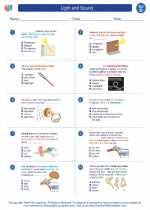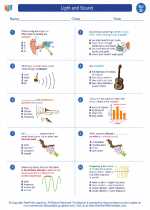Medical Ethics
Medical ethics is a branch of ethics that deals with the moral principles and values that guide medical practice. It involves making decisions about medical treatment, patient care, and research in a morally responsible manner.
Key Principles of Medical Ethics
- Autonomy: Respecting the rights of patients to make their own decisions about their healthcare.
- Beneficence: Acting in the best interest of the patient and providing care that benefits them.
- Non-maleficence: Avoiding actions that cause harm to the patient and preventing harm.
- Justice: Ensuring fairness and equality in the distribution of healthcare resources and treatments.
Study Guide
Here are some key points to study about medical ethics:
- Understand the principles of medical ethics and how they apply to patient care and treatment decision-making.
- Explore real-life case studies and ethical dilemmas in medicine to understand how ethical principles are applied in practice.
- Learn about the role of informed consent in medical ethics and the rights of patients to make autonomous decisions about their healthcare.
- Examine the ethical considerations in medical research, including the protection of human subjects and the responsible conduct of research.
- Discuss the importance of confidentiality and privacy in the doctor-patient relationship and the ethical implications of sharing patient information.
By understanding medical ethics, healthcare professionals can make informed and ethical decisions in their practice, ultimately benefiting the well-being of their patients.
.◂Science Worksheets and Study Guides Fourth Grade. Light and Sound
Study Guide Light and sound
Light and sound  Worksheet/Answer key
Worksheet/Answer key Light and sound
Light and sound  Worksheet/Answer key
Worksheet/Answer key Light and sound
Light and sound  Worksheet/Answer key
Worksheet/Answer key Light and sound
Light and sound  Vocabulary/Answer key
Vocabulary/Answer key Light and sound
Light and sound  Vocabulary/Answer key
Vocabulary/Answer key Light and sound
Light and sound  Vocabulary/Answer key
Vocabulary/Answer key Light and sound
Light and sound 

 Worksheet/Answer key
Worksheet/Answer key
 Worksheet/Answer key
Worksheet/Answer key
 Worksheet/Answer key
Worksheet/Answer key
 Vocabulary/Answer key
Vocabulary/Answer key
 Vocabulary/Answer key
Vocabulary/Answer key
 Vocabulary/Answer key
Vocabulary/Answer key

The resources above cover the following skills:
PHYSICAL SCIENCE (NGSS)
Waves and their Applications in Technologies for Information Transfer
Students who demonstrate understanding can:
Develop a model of waves to describe patterns in terms of amplitude and wavelength and that waves can cause objects to move.